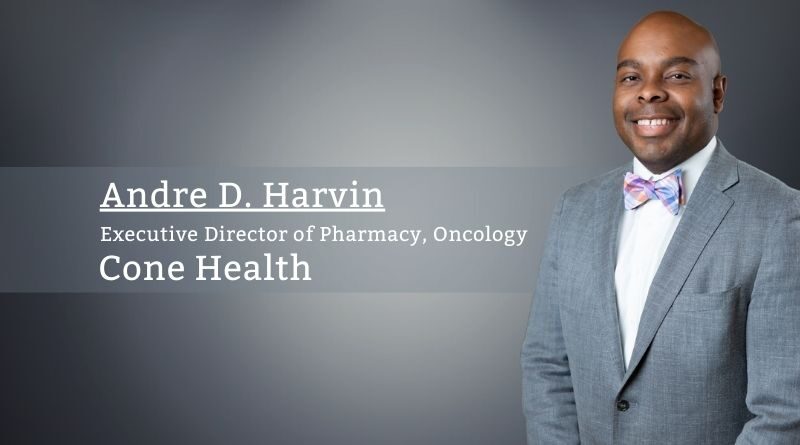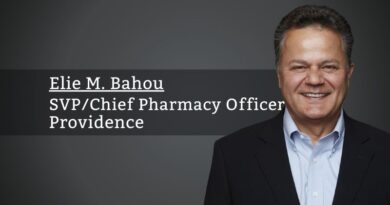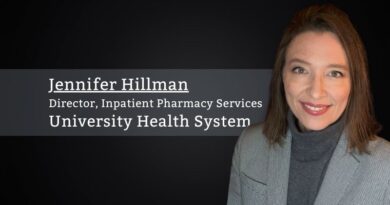The Workforce of the Future
By Andre D. Harvin, PharmD, MS, Executive Director of Pharmacy, Oncology, Cone Health
What could be worse than 2020? No, really? How about 2025? Don’t believe me? A recent survey by Elsevier Health, called “Clinician of the Future,” found that 47% of clinicians in the US reported they were planning to leave their role in the next 2 – 3 years. Of those planning to leave their role, 39% considered leaving the profession entirely. 1 in 5 healthcare workers quit their jobs in the first 18 months of the pandemic, with another half million workers (and counting) having been laid off. Even hospital closures reached a record pace in 2020 due in part to many familiar pressures such as rising costs for labor, drugs, supplies, and equipment.
These aren’t new issues. In fact, these issues have essentially defined the last 2 to 3 years in healthcare. Burnout, resiliency, health & wellness programs are persistent requirements for healthcare leaders. In short, we know this is an issue and you’ll find no shortage of articles detailing strategies to mitigate these risks for your team and organization. Instead, let’s discuss the generational shift happening each day in this country—one more statistic; 27% by 2025. Gen Z, those born between 1997 and 2012, will represent 27% of the US workforce by 2025, and with them, we will redefine our collective definition of work, balance, and life.
As leaders, we must assess the key pillars of where, when, and how we work to maximize engagement, collaboration, and productivity.
Fundamentally, very little separates us when it comes to basic needs and desires. Happiness, fulfillment, appreciation, and securityare universal goals that we all share, regardless of generation.
Create an Authentic Culture
As healthcare still reels from the Great Resignation, workplace culture continues to be a determinant in employee recruitment and retention. Although salary remains a top priority across all generations, Gen Z places company values higher than any other generation when deciding on a job. To attract and retain this influential generation, companies and employers must not only produce a good product but be good citizens. Companies must demonstrate their commitment to a broader set of societal challenges such as sustainability, climate change, and efforts to address diversity, equity, and inclusion.
How will this manifest in healthcare? First, assess ways your organization can build a workforce that reflects the increasingly diverse population they serve. Be clear, this cannot and should not be done overnight. The pipeline of future pharmacists, physicians, and nurses isn’t as diverse as our population; therefore, we have clear gaps. Luckily, as potential future employers, we can influence colleges and universities to partner in our goals to create a more representative society. I should note, for Gen Z, diversity represents more than race and gender; it must also respect identity and orientation.
Flexibility and Autonomy
As we draw insights and preferences from their entry into the workforce, we will be forced to reflect on how ‘work’ is changing and evolving. Let’s face it. We’re in a digital age with rapidly developing technologies and interfaces that blend the human-machine connection. Though we use EMRs, advanced imaging and screening techniques, and new drugs that can target defective genes; the fundamental ‘work’ we do as healthcare professionals has been largely unchanged. How we approach the delivery of healthcare is rife for disruption.
No longer will being the smartest or most clinically savvy provider be a determinant of success. The future clinician will need to be a Renaissance figure who can leverage their talents, interests, and expertise in a rapidly shifting environment. Clinicians must be empathetic, technologically inclined, demonstrate high emotional intelligence, and possess the necessary business and financial acumen to boot.
As more is required, more must be given. For Gen Z, flexibility is imperative. That doesn’t translate to 100% remote working conditions. It does refer to flexible work schedules, hybrid work opportunities, and more influence on how and when work is completed.
Earlier in the pandemic, healthcare fully embraced this new flexibility. Virtual visits grew at unprecedented levels. We found innovative opportunities to connect with patients outside our four walls and move beyond the traditional provider-patient relationship. Yet now we all see this adoption dwindling; at my organization, virtual visits are a fraction of their pandemic highs. There is a merit that telehealth isn’t for everyone, however premature abandonment of the technology may hamper future opportunities for flexible working conditions.
As leaders, we should challenge our teams and organization to genuinely assess flexible work options. The return to ‘business as usual’ could be a critical mistake for those who refuse to learn the lessons of the last few years. The return to office debate illustrates a definite divide between management and worker perspectives. At the core of this debate are employees believing they are just as productive out of the office and managers being less convinced. As leaders, we must assess the key pillars of where, when, and how we work to maximize engagement, collaboration, and productivity.
Purposeful, Challenging, and Passion-Driven Work
By 2025 millennials and Gen Z will represent just under 70% (68.4%) of the workforce. One aspect that unites these two generations is their desire for work that they care about and that potentially makes a difference in the world. This relationship with work is unique,yet that ambition will lead to challenges for healthcare leaders.
On the surface, many of us would assume that healthcare invokes passion and purpose and that being challenging is a no-brainer! We’re all set then, right? Wrong! Gen Z has already proven to be uniquely productive; their ability to adapt at the speed of evolution is unmatched. This unique trait has a downside: they’re easily bored by menial and repetitive tasks.
Consider the roles and responsibilities of the future clinician. What will work look like with a skilled clinician who also understands data analytics. Could more clinical decisions be automated with real-world evidence? Possibilities are brimming, as long as we’re willing to take some risks.
Conclusion
The war for talent is already underway. Luckily, for those paying attention, Gen Z is already incredibly articulate about what they want and how they want it. Our opportunity is to cultivate the teams and cultures that deliver more of what young workers need to thrive. Will you be ready?



